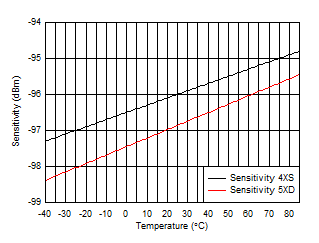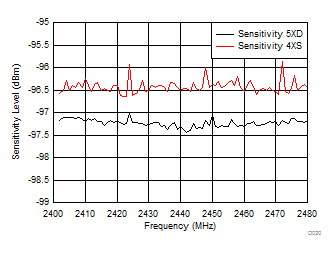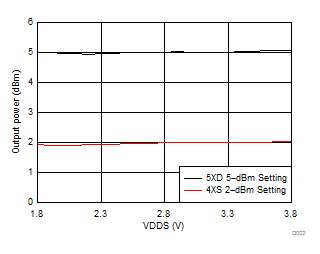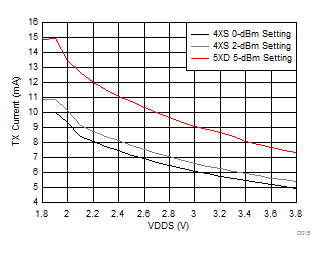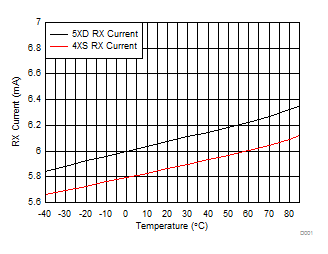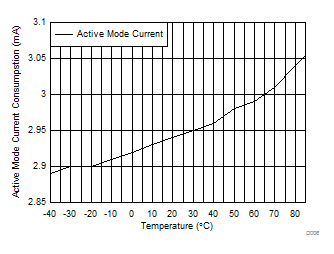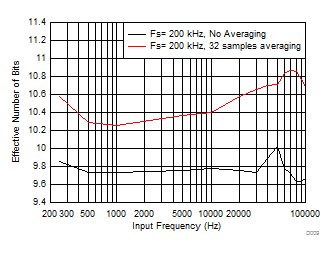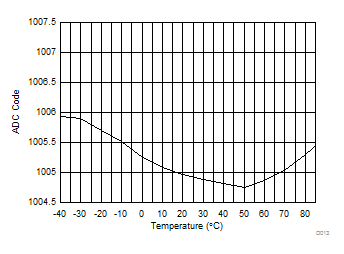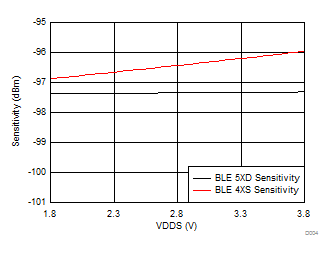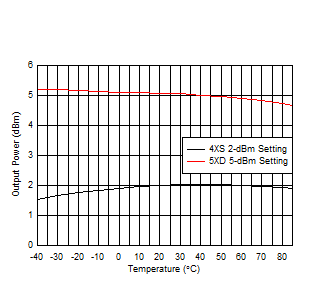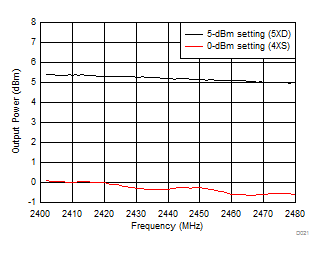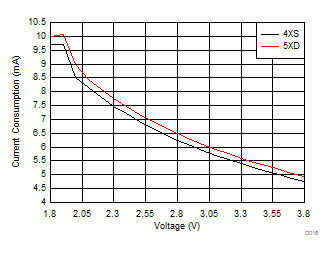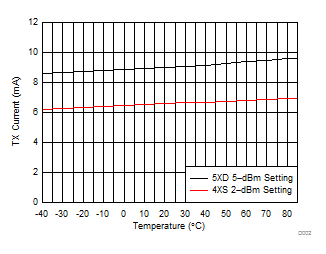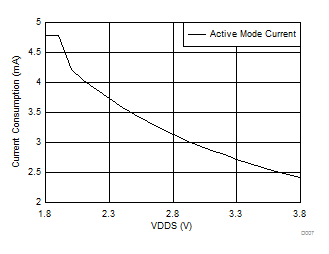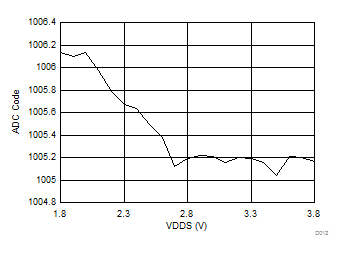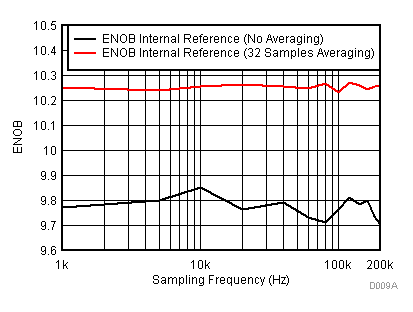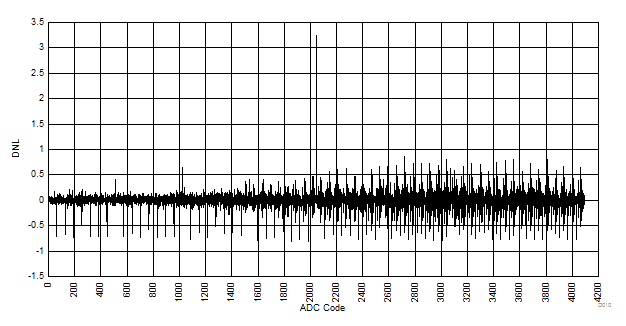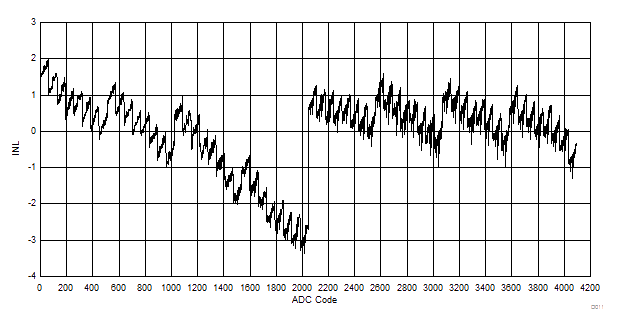ZHCSFW7C december 2016 – september 2020 CC2640R2F
PRODUCTION DATA
- 1 特性
- 2 应用
- 3 说明
- 4 Functional Block Diagram
- 5 Revision History
- 6 Device Comparison
-
7 Terminal Configuration and Functions
- 7.1 Pin Diagram – RGZ Package
- 7.2 Signal Descriptions – RGZ Package
- 7.3 Pin Diagram – RHB Package
- 7.4 Signal Descriptions – RHB Package
- 7.5 Pin Diagram – YFV (Chip Scale, DSBGA) Package
- 7.6 Signal Descriptions – YFV (Chip Scale, DSBGA) Package
- 7.7 Pin Diagram – RSM Package
- 7.8 Signal Descriptions – RSM Package
-
8 Specifications
- 8.1 Absolute Maximum Ratings
- 8.2 ESD Ratings
- 8.3 Recommended Operating Conditions
- 8.4 Power Consumption Summary
- 8.5 General Characteristics
- 8.6 125-kbps Coded (Bluetooth 5) – RX
- 8.7 125-kbps Coded (Bluetooth 5) – TX
- 8.8 500-kbps Coded (Bluetooth 5) – RX
- 8.9 500-kbps Coded (Bluetooth 5) – TX
- 8.10 1-Mbps GFSK (Bluetooth low energy) – RX
- 8.11 1-Mbps GFSK (Bluetooth low energy) – TX
- 8.12 2-Mbps GFSK (Bluetooth 5) – RX
- 8.13 2-Mbps GFSK (Bluetooth 5) – TX
- 8.14 24-MHz Crystal Oscillator (XOSC_HF)
- 8.15 32.768-kHz Crystal Oscillator (XOSC_LF)
- 8.16 48-MHz RC Oscillator (RCOSC_HF)
- 8.17 32-kHz RC Oscillator (RCOSC_LF)
- 8.18 ADC Characteristics
- 8.19 Temperature Sensor
- 8.20 Battery Monitor
- 8.21 Continuous Time Comparator
- 8.22 Low-Power Clocked Comparator
- 8.23 Programmable Current Source
- 8.24 Synchronous Serial Interface (SSI)
- 8.25 DC Characteristics
- 8.26 Thermal Resistance Characteristics
- 8.27 Timing Requirements
- 8.28 Switching Characteristics
- 8.29 Typical Characteristics
- 9 Detailed Description
- 10Application, Implementation, and Layout
- 11Device and Documentation Support
- 12Mechanical, Packaging, and Orderable Information
8.29 Typical Characteristics
